Gabrielle Sumpter ’16 said goodbye to her family, friends and life in Los Angeles on Sept. 4, 2014, as she began her yearlong exchange program in Santander, Spain.
Through a family friend, Sumpter discovered The Rotary Youth Exchange, a study abroad program for high school students. She filled out a pre-application and kept the option in the back of her mind.
“I wasn’t actually planning to go on the exchange, it was more that I just wanted the option to go,” Sumpter said.

Sumpter’s opinion regarding the exchange didn’t change until she attended an orientation meeting for prospective families in Jan. 2014.
At the orientation, Sumpter heard from students who had already gone on an exchange, as well as students from foreign countries who were studying abroad in America. She was inspired by seeing how close the students were and hearing about how much fun they had been having.
“It was really touching and moving to see how people from all over the world could have such a connection just by being in the same place but having different cultures and values and still being able to respect each other and have a good time,” Sumpter said.
She knew she wanted to study abroad in Europe but wasn’t yet sure of which specific country. Sumpter eventually listed Spain as her first choice on the application since she had been learning Spanish since seventh grade and already had an interest in the Spanish culture.
While her classmates were beginning their junior year of high school, Sumpter packed her bags and began her journey to Spain.

When she arrived in Spain, Sumpter was surprised by how little Spanish she actually knew.
“It’s a lot different once you’re actually in the country, completely immersed where people speaking this foreign language to you,” she said. “I thought I was pretty good before I left because I’d taken honors and in high school I started doing really well in the class. But then I got there and I was like, ‘Oh snap, I don’t know anything.'”
Sumpter’s first host family helped her ease into being completely immersed in the language. Her host mother was originally from Miami and was an English teacher in Spain, which Sumpter was thankful for.
“It was kind of difficult in the beginning, but as you learn and as you continue to make mistakes and accept those mistakes, you become better and you’ll learn from them.”
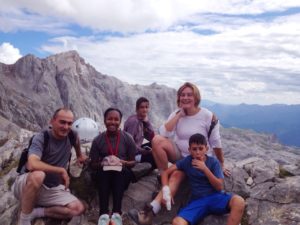
Besides the language barrier, transitioning into a different school was also challenging for her.
During her time in Spain, Sumpter attended Instituto de Educación Secundaria La Albericia, a public coed high school in Santander.
Sumpter felt the relationships between students and teachers were impersonal and strict, unlike the connections she had with her teachers at Archer. She also thought the focus of school was to memorize facts rather than understand the material.
The majority of classes were lecture-based and the students rarely asked questions or participated in discussions, according to Sumpter.
“That was really difficult because at Archer, you’re basically asked to question things and make inferences and be above just memorizing the facts,” she said.
Students at IES La Albericia also stayed in the same classroom for all their core subjects, rather than changing classrooms for different classes like in America.

Sumpter still enjoyed going to school despite these aspects.
“I really appreciated going,” she said, “because it allowed me to see the culture and really improve my Spanish.”
During the last three months of her exchange, Sumpter said goodbye to her first host family to join another family.
Sumpter’s first host family was American and Spanish, but her second host family was more of a traditional Spanish family.
“I got to ease into [the Spanish culture] by staying with a mixed family and then going into a full-on Spanish family,” she said.
Some of the main cultural differences she noticed were how people interacted with each other. According to Sumpter, people from Spain are very affectionate towards one another.
“Everyone knows that in Spain you greet everyone with the two kisses — to everyone,” she said.

“That was kind of weird for me because in America, it’s distant — pretty formal — when you’re meeting someone,” she said. “Versus there, it’s like you’ve known the person for so long.”
“I’d be in a store and people would be leaving the store and everyone says ‘Hasta luego!’, which means ‘See you later,'” she said. “That was pretty weird for me, especially when I was leaving the store and I’m like, ‘Do I know you?'”
Soccer plays a big part in Spanish culture, according to Sumpter.
“Everyone watches soccer, everyone. No matter who you are, you know soccer. You have a team, like Real Madrid or Barcelona,” she said.
The nightlife in Spain is also different than that in America. Normally in the U.S., only people 18 years or older can go to a dance club.
“In Spain, they have under-age discotecas and they have over-age discotecas. Like middle schoolers would go out and party,” Sumpter said.
On a typical Friday afternoon, Sumpter would come home from school and have lunch since there is no break for lunch during the school day.
“Then I’d probably take a siesta, which is a nap, and then I’d meet with friends later that day. Some Fridays we’ll just go to dinner, hang out and walk around the city center,” Sumpter said, “other Fridays we would get dinner and meet later that night to go out to party.”

Everything starts much later in Spain that it does in America, Sumpter said. “In America, parties start around eight or nine, more or less, and in Spain they start at 11. Even at 11, no one’s going to be there so I would usually go out at 11:30.”
Overall, her favorite part about studying abroad in Spain was spending time with her host families.
“They really treated me like I was their own daughter so it was a great experience,” she said.
“My favorite experience was when I went to Salamanca with my religion class because I got to see a lot of the history of Spain that we were talking about in the class, as well as in my Spanish language class,” Sumpter said.
Although she was homesick during the first few months of her exchange, being away from her family for a year was not as difficult as she thought it would be, according to Sumpter.
“I’ve always been pretty independent growing up,” she said. “It wasn’t that bad because you know you’re going to come back and that you have to come back.”
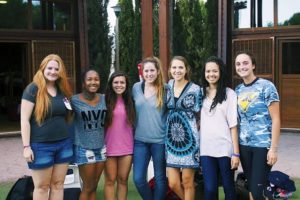
“I was lucky to have good host families and a good support system there,” she said. “I never felt like I wasn’t a part of something.”
After this experience, Sumpter said she has become more open-minded to people around her.
“Just like accepting people’s differences and respecting them, even if you don’t agree with how they go about the way they live their life,” she said.
Her Spanish has also improved.
“I wouldn’t say it’s perfect but it’s a lot better and I hope to continue it,” she said.
Sumpter said her main take-away from her exchange was realizing how small her life in L.A. is, compared to the rest of the world.
“There’s so much more to living in L.A. and California and America. There’s this whole other world and they do completely different things,” she said. “We are all human and we’re all made out of the same thing, but we all have all these different languages and cultures and values that are rooted in where we live. And I think that’s just amazing.”




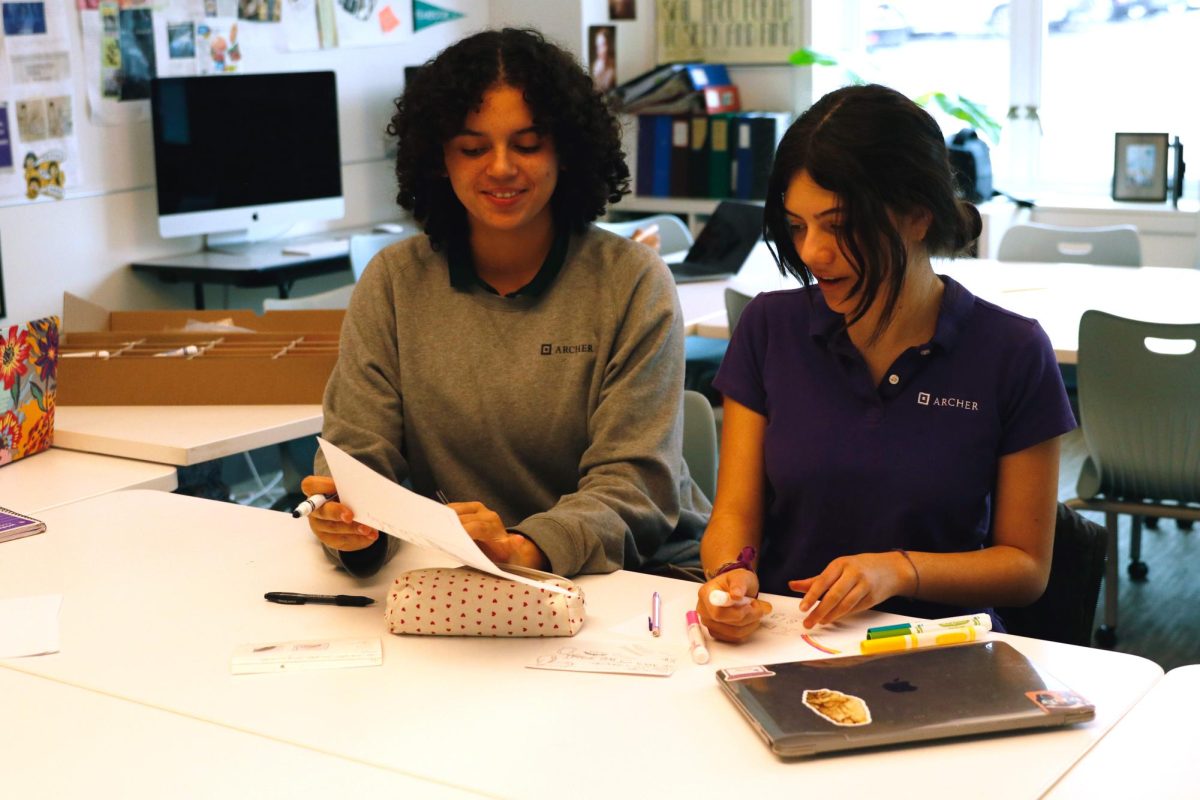



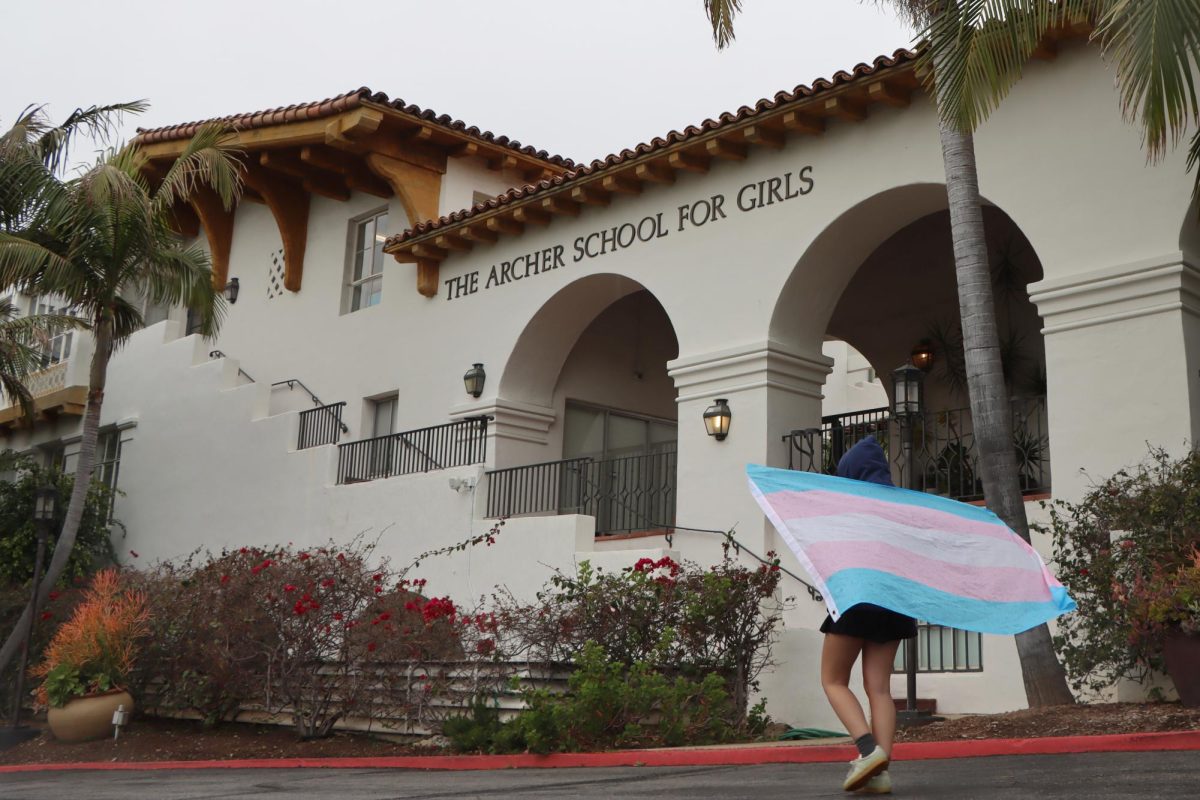

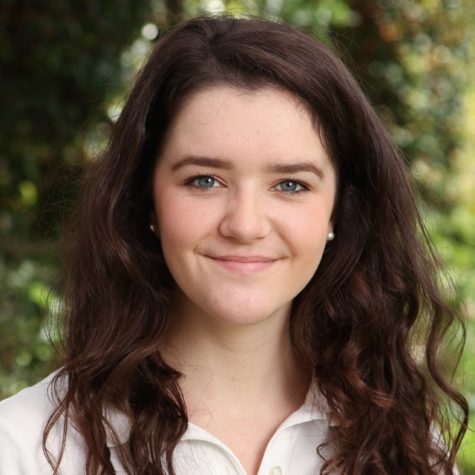
Carol V • Nov 11, 2015 at 1:25 pm
Great article. What a fantastic experience for Gabby!
Ms. Otero • Oct 14, 2015 at 9:32 am
As someone who just returned from living in Spain, it was nice to read about one of our own students going through similar experiences in the same host country. In this article, Isabelle does a fantastic job in highlighting the parts of Gabby’s experience that I’m sure are the ones that have impacted her the most. Great read!
Gabrielle Sumpter • Oct 9, 2015 at 8:32 am
I am not only honored to have been interviewed in order to share my experience but I am so grateful for Izzy Kantz.
Thank you for writing an amazing article that perfectly highlighted my exchange!
Ms. Gold • Oct 8, 2015 at 9:08 am
I am very impressed with the depth of the articles I am reading in The Oracle this year. The interview with Gabby does a great job of highlighting some specific cultural differences that Gabby observed in terms of the level of independence her Spanish classmates had, their learning style and the different attitudes toward personal space in greeting one another. Thanks for sharing this with the community.